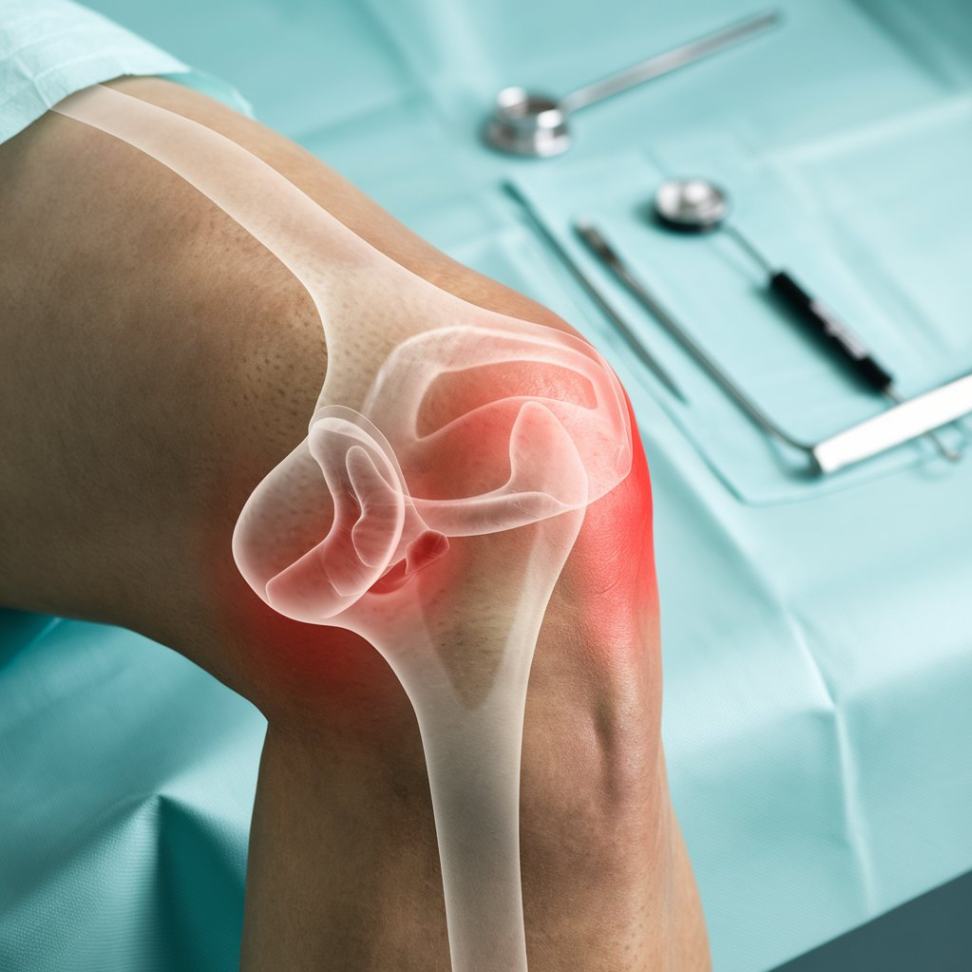Can Stem Cell Knee Injections Regrow Cartilage? Exploring the Possibilities

Strong 8k brings an ultra-HD IPTV experience to your living room and your pocket.
Introduction
Knee pain is a common issue that affects millions of people, often caused by cartilage damage due to aging, injuries, or conditions like osteoarthritis. Cartilage acts as a cushion between bones, allowing smooth movement and shock absorption. However, once damaged, cartilage has a limited ability to heal on its own because it lacks a direct blood supply.
Understanding Cartilage and Its Role in Knee Health
Cartilage is a crucial component of knee health, providing the smooth, cushion-like surface that allows bones to glide over each other without friction. It serves as a shock absorber, reducing the impact on the knee joint during movement. Healthy cartilage ensures pain-free mobility, enabling activities such as walking, running, and jumping.
Types of Cartilage in the Knee
The knee contains three main types of cartilage:
- Articular Cartilage – Covers the ends of bones within the joint, allowing for smooth movement.
- Meniscus – Two C-shaped discs that act as additional shock absorbers between the femur and tibia.
- Hyaline Cartilage – Found on the joint surface, playing a crucial role in weight distribution and stability.
Why Cartilage Damage is a Problem
Unlike other tissues in the body, cartilage has no direct blood supply, meaning it lacks the ability to heal or regenerate naturally. When cartilage wears down due to injury, aging, or arthritis, it can lead to:
- Joint pain and stiffness
- Reduced mobility and flexibility
- Bone-on-bone contact, causing further joint deterioration
How Stem Cell Knee Injections Work
Stem cell therapy has gained attention as a potential regenerative treatment for knee cartilage damage. Unlike traditional treatments that mainly manage pain, stem cell knee injections aim to repair and regenerate damaged tissue by harnessing the body’s natural healing abilities.
What Are Stem Cells?
Stem cells are unique because they can develop into different types of cells and help repair damaged tissues. The type most commonly used in knee injections is mesenchymal stem cells (MSCs), which can differentiate into cartilage, bone, and muscle cells.
Sources of Stem Cells for Knee Injections
Stem cells used in knee injections typically come from:
- Bone marrow – Extracted from the patient’s hip bone (autologous stem cells).
- Adipose (fat) tissue – Harvested from the patient’s abdominal fat.
- Donor sources – Amniotic or umbilical cord-derived stem cells (allogeneic stem cells).
How the Procedure Works
- Stem Cell Extraction – If autologous stem cells are used, they are collected from the patient’s bone marrow or fat tissue.
- Processing & Concentration – The extracted stem cells are processed to concentrate the most potent regenerative cells.
- Injection into the Knee – The stem cells are injected directly into the damaged knee joint, often guided by ultrasound for precision.
- Healing & Regeneration – Once inside the knee, the stem cells work by:
- Reducing inflammation to relieve pain and swelling.
- Stimulating cartilage repair by encouraging new cell growth.
- Releasing growth factors that support tissue regeneration.
How Long Does It Take to See Results?
Patients may begin noticing improvements within a few weeks to months, with the best results typically appearing after three to six months. However, outcomes vary based on factors like age, the severity of cartilage damage, and overall health.
Scientific Evidence on Cartilage Regrowth
Stem cell therapy has gained significant attention as a potential treatment for knee cartilage damage, but does scientific research support its ability to regrow cartilage? While early studies show promising results, ongoing research is still determining the full extent of its effectiveness.
Studies on Stem Cells and Cartilage Regeneration
Several clinical studies and trials have explored the role of mesenchymal stem cells (MSCs) in knee cartilage repair:
- An Analysis in the American Journal of Sports Medicine from 2016
- Researchers injected MSCs into patients with knee osteoarthritis.
- MRI scans showed increased cartilage volume and pain relief in treated patients.
- A 2017 Study in Stem Cells Translational Medicine
- Found that stem cell injections improved cartilage thickness and joint function in osteoarthritis patients.
- A 2020 Journal of Clinical Medicine Review
- Analyzed multiple studies on MSC therapy for knee osteoarthritis.
- Concluded that while stem cells help reduce inflammation and pain, their ability to regenerate full-thickness cartilage remains limited.
Limitations of Current Research
While these studies show that stem cells can enhance cartilage repair and reduce knee pain, there are still challenges:
- Cartilage regrowth is slow and may not fully restore joint function.
- Results vary based on patient factors such as age, severity of damage, and overall health.
- Long-term durability of regenerated cartilage is still being studied.
Conclusion
Stem cell knee injections have emerged as a promising option for individuals suffering from cartilage damage and knee pain. While research suggests that mesenchymal stem cells (MSCs) can aid in cartilage repair, reduce inflammation, and improve joint function, full cartilage regrowth remains a challenge. Current studies indicate that patients with mild to moderate knee damage may benefit the most, while those with severe cartilage loss may require additional treatments.
Note: IndiBlogHub features both user-submitted and editorial content. We do not verify third-party contributions. Read our Disclaimer and Privacy Policyfor details.







